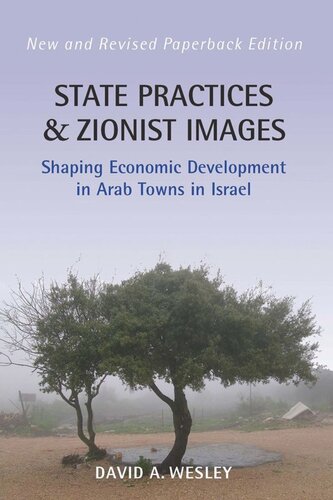

Most ebook files are in PDF format, so you can easily read them using various software such as Foxit Reader or directly on the Google Chrome browser.
Some ebook files are released by publishers in other formats such as .awz, .mobi, .epub, .fb2, etc. You may need to install specific software to read these formats on mobile/PC, such as Calibre.
Please read the tutorial at this link: https://ebookbell.com/faq
We offer FREE conversion to the popular formats you request; however, this may take some time. Therefore, right after payment, please email us, and we will try to provide the service as quickly as possible.
For some exceptional file formats or broken links (if any), please refrain from opening any disputes. Instead, email us first, and we will try to assist within a maximum of 6 hours.
EbookBell Team

4.0
66 reviewsAlthough the Israeli state subscribes to the principles of administrative fairness and equality for Jews and Arabs before the law, the reality looks very different. Focusing on Arab land loss inside Israel proper and the struggle over development resources, this study explores the interaction between Arab local authorities, their Jewish neighbors, and the agencies of the national government in regard to developing local and regional industrial areas. The author avoids reduction to simple models of binary domination, revealing instead a complex, multi-dimensional field of relations and ever-shifting lines of political maneuver and confrontation. He examines the prevailing concept of ethnic traditionalism and argues that the image of Arab traditionalism erects imaginary boundaries around the Arab localities, making government incursion disappear from view, while underpinning and rationalizing the exclusion of the Arab towns from development planning. Moreover, he shows how images of environmental protection mesh with and support such exclusion. The study includes a chronology of events, tables, maps, and photographs.
This revised paperback edition with a new epilogue brings accounts of Arab land loss and struggles for economic development up to date. The author also deals with the challenges of life and research in Israel and examines the possibilities of sharing the land as the homeland of both Jews and Palestinians.